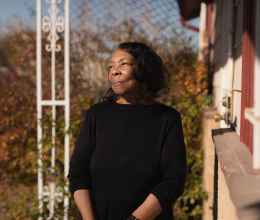The American Civil Liberties Union Foundation of Colorado (ACLU) announced today a settlement agreement that ends a four-and-a-half-year legal battle between law students and the Colorado Board of Law Examiners over the questions it poses to bar applicants.
The lawsuit, filed by the ACLU on behalf of law students and the ACLU chapter at the Denver University School of Law, alleged that the Board violated the Americans for Disabilities Act (ADA) and the constitutional right of privacy by requiring applicants to the Colorado bar to answer broad-ranging questions about any past history of substance abuse or any past history of treatment for mental or emotional disorders.
The court fight focused on three questions that the ACLU asserted were far too broad. The ACLU argued that the questions unnecessarily demanded sensitive personal information about past history of treatment that was not necessary to fulfill the Board's function of determining whether applicants are currently fit to practice law.
"The Board has eliminated one of the three questions we challenged in federal court and has made significant modifications to the other two," said Steve Masciocchi, of the law firm of Holland & Hart, who handled the case as an ACLU volunteer cooperating attorney. "The questions now are much more focused and far less intrusive than they were when we first began asking for changes almost five years ago."
One of the questions asked if the applicant had ever received treatment or consulted any person about the use of drugs or alcohol at any time in the past ten years. Another asked about past history of treatment for a wide variety of mental or emotional conditions, and the third inquired about past history of hospitalization for emotional or mental health problems.
"The Board has eliminated entirely the question about hospitalization and it has significantly narrowed the scope of the question about history of treatment for alcohol and drug issues," Masciocchi explained. "In addition, the revised text makes it clear that applicants are not required to reveal information about 'situational counseling' such as grief counseling or relationship counseling."
As part of the settlement agreement, the Board also agreed to make its staff available each fall for a presentation at Colorado's two law schools to inform students about the bar application process and the questions that remain on the bar application.
"The Board deserves credit not only for narrowing the scope of the questions, but also for agreeing to make presentations at the law schools," said Mark Silverstein, ACLU Legal Director. "This outcome helps to protect students' privacy while also reducing their anxieties about what will be expected of them when they fill out the bar application."
The agreement came after a long legal battle over whether the courts had jurisdiction to consider the law students' legal arguments. The case was dismissed by a federal district court in 2000 but reinstated by the Tenth Circuit Court of Appeals in 2001.
